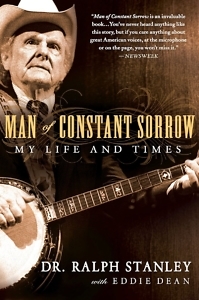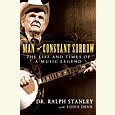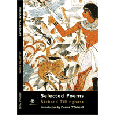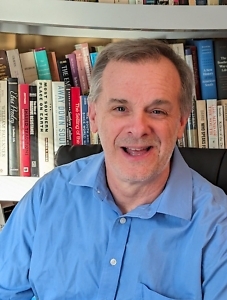The End
Jean Auel talks with Chapter 16 about the long-awaited conclusion to her celebrated Earth’s Children® series
In 1977, at the age of forty, Jean Auel took a leap of faith. Although she had not written for publication before, she quit her job to write a story about a woman who didn’t fit in. That “story” turned into an outline for six books—a series of novels that would take Auel more than thirty years to finish. In the process, the Earth’s Children® series, which opened with the unexpected 1980 bestseller, The Clan of the Cave Bear, became one of the most surprising and ground-breaking Cinderella stories in publishing history.
During the course of her lengthy career, this unassuming wife and mother from Portland, Oregon, has generated some impressive literary statistics: worldwide sales of forty-five million copies (twenty-two million in the United States alone); the highest advance ever paid for a debut novel; the first hardcover novel with a first printing of more than one million copies; five New York Times bestsellers, four of which achieved the list’s top spot; and translation of her work into thirty-five languages. With The Land of Painted Caves, the sixth and final installment in the Earth’s Children® series, Auel is poised to set new records all over the world, with simultaneous publication in seventeen countries.
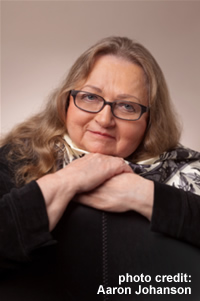 But statistics are not what has kept Auel’s fans enthralled all these years. They come back to follow the exciting journey of Ayla, her Cro Magnon protagonist. Orphaned at a young age and reluctantly adopted into a Neanderthal tribe—the Mamutoi—Ayla is the eternal outsider. Born into one culture yet raised in a very different world, she struggles throughout the story to find her place in the Europe of the Ice Age. But Ayla’s keen intelligence and indomitable spirit give her the strength to turn difficult circumstances into opportunities for growth, and her kindness, humility, and beauty draw others to her in spite of her strangeness.
But statistics are not what has kept Auel’s fans enthralled all these years. They come back to follow the exciting journey of Ayla, her Cro Magnon protagonist. Orphaned at a young age and reluctantly adopted into a Neanderthal tribe—the Mamutoi—Ayla is the eternal outsider. Born into one culture yet raised in a very different world, she struggles throughout the story to find her place in the Europe of the Ice Age. But Ayla’s keen intelligence and indomitable spirit give her the strength to turn difficult circumstances into opportunities for growth, and her kindness, humility, and beauty draw others to her in spite of her strangeness.
This sixth installment in the series finds Ayla happily mated to Jondalar, the mother of young Jonayla, and friend to Wolf, raised by her hand and consequently her fierce protector. Her attachment to Wolf sets her apart from her husband’s people, the Zelandonii, as does her way with horses, strange accent, ability to defend herself and to hunt, and extensive knowledge of medicinal plants. When the spiritual leader of the Zelandonii chooses Ayla to be her acolyte, events are set in motion that will test the young woman intellectually, physically, and emotionally—and ultimately bring challenging new changes to the people of her adopted home.
Auel imagines the lifestyle of her characters in exacting detail as they hunt large animals with hand tools, explore sacred caves decorated by ancient ancestors, raft raging rivers, travel long distances, and perform mating rituals. She provides an intricate framework of religious beliefs, sexual practices, social protocols, and shared prohibitions. In so doing, she illustrates how community and culture develop through the dissemination of specialized knowledge and skills from one group to another within a stable and harmonious society. Jean Auel recently answered questions from Chapter 16 via email prior to her Nashville appearance on April 13.
Chapter 16: In the early 1980s, the talk of the publishing industry was the phenomenal and somewhat unexpected success of The Clan of the Cave Bear and its much anticipated sequel, The Valley of Horses. Last year, your Earth’s Children® series was published for the first time as e-books, a concept that was completely unknown when you began your career. Have the changes in publishing had any effect at all on the writing itself? What are your hopes and fears for the future of book publishing?
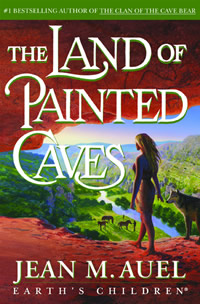 Auel: I don’t think about anything else except the story I’m writing once I get into it. I don’t write for anyone except myself. I hope that the publishing industry remains healthy and that writers can continue to receive fair compensation for their intellectual property.
Auel: I don’t think about anything else except the story I’m writing once I get into it. I don’t write for anyone except myself. I hope that the publishing industry remains healthy and that writers can continue to receive fair compensation for their intellectual property.
Chapter 16: You are well known for your meticulous research and the tremendous amount of detail that you use to inform and enliven the story of Ayla and her European Ice Age environment. Has the Internet changed the way you conduct research?
Auel: I don’t use the Internet. My husband has an e-mail site and when something comes in that is for me, from a publisher for example, he runs off a hard copy. Unfortunately, I don’t trust the Internet as a research resource. Anyone can put anything they want on it. I will not use material from the web unless I recognize the name of the one who is posting it, and the only way I can learn that is by reading the books that are published by the academic press, or by meeting someone at a scientific conference.
Chapter 16: You closely follow the progress of archeological discoveries, incorporating new scientific theories into your novels, and have even traveled extensively to visit dig sites throughout Europe. How have you had to modify your original vision over the years to reflect these changes in our understanding of our ancestors of more than 25,000 years ago?
Auel: Before I could write a Neanderthal character, I had to invent my Neanderthals, my Clan. I did a lot of reading about Neanderthals and early modern humans, and the size and shape of brains, trying to understand in what ways they may have been different from us and in what ways they were the same. Even then, I had to invent things out of my imagination. It was easier to work out ways of doing things. They were hunter-gatherers, so I borrowed certain things from more contemporary hunting-gathering societies. There are only so many ways you can skin an animal, or search for edible vegetation.
It was even easier when it came to Cro Magnon hunter-gatherers. Basically, they were our grandparents, many generations removed. They could speak with the same ease and facility; they had the same range of intelligence, the same emotional responses and psychological reactions. They just earned their living in a different way and had a different set of beliefs, but I had already done that. And there were always some scientists whose views did not always match the general consensus. Sometimes I have been accused of using “Dr. So-and-so’s idea, and he’s wrong.” But if I did, it’s because it felt more correct to me.
Chapter 16: On the website created for you by your publisher you are quoted as saying that “a careful study of the archaeological record shows that humanity is defined by compassion, curiosity and by art and invention.” Are there any ways in which your research into early life on Earth has influenced your appreciation of your own world and the present-day “descendants” of your characters?
Auel: In recent times things have gotten off track somewhat, but when you consider that we were hunter-gatherers for millions of years, during which time the culture remained essentially unchanged…. From the time that early modern humans appeared, we have gone from throwing a spear to sending a rocket to the outer planets and landing people on the moon, in 40,000 years. We have also invented hot showers!
Chapter 16: You raised five children while writing the Earth’s Children® series. Any advice for aspiring writers who bemoan the way life too often makes it difficult or impossible to write seriously?
Auel: I would bemoan, too, if I had raised the children while I was writing the books. When I began writing, I had three daughters in college and two sons in high school: one of them a senior, the other a sophomore. They weren’t taking a great deal of my time. I married at eighteen, and had the five children before I was twenty-five. I didn’t start writing until I was forty, which gives you a clue to my age. (I am seventy-five.) Although my brain feels thirty, my knees know the truth. I really admire anyone who attempts to write when they have young children.
Chapter 16: Any chance you are considering a seventh book in this series?
Auel: I’m sure I will continue to write as long as I am physically and mentally able, but I like the ending of this series. I hope it causes people to think. And to be honest, I am tired and need to take a break, even if that only means writing something different. But who knows what the future holds?
Jean Auel will read from The Land of Painted Caves at the Nashville Public Library on April 13, at 6:15 p.m. as part of the Salon at 615 series.
